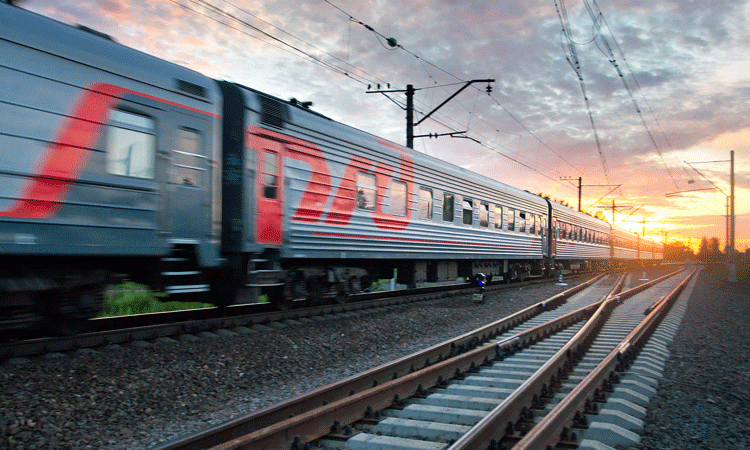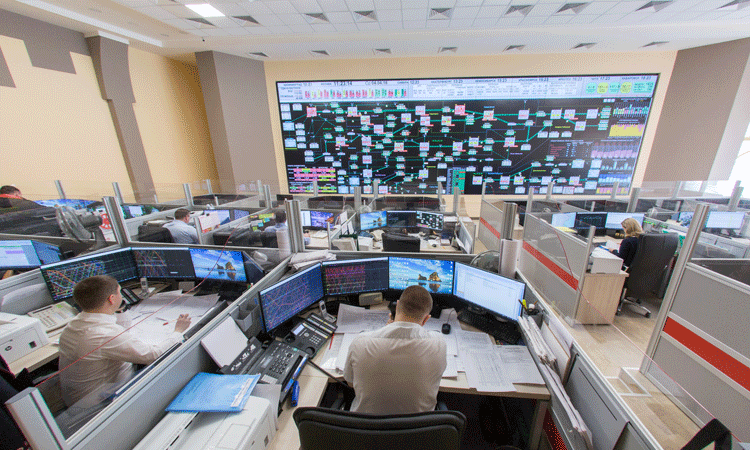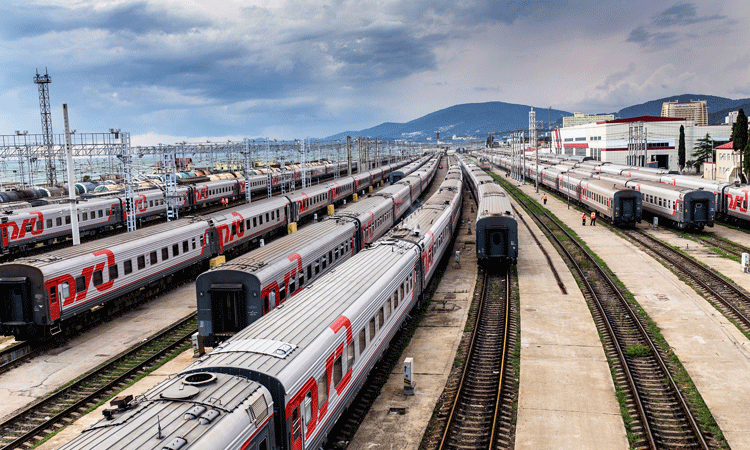Russian Railways’ reveal their digital transformation strategy
Posted: 25 September 2019 | Evgeny Charkin | No comments yet
Evgeny Charkin, Director of Information Technologies at JSC Russian Railways writes that in this modern world it is impossible to ensure the further dynamic growth of any business without focusing on digitalisation. As such, Russian Railways Holding has started to develop digital technologies in order to safeguard its future.


The key document defining the digital transformation of the Russian railways by 2025 is its ‘Digital Transformation Strategy’, which was developed under the instruction of the company’s Board of Directors and considers not only the unique characteristics of our transportation and logistics Holding, but also developments within IT and key global trends. The basis of the digital transformation of Russian Railways is improving – and sometimes radically transforming – the applied technologies, processes and cultural perception of IT. I believe it is vital that we look at this in terms of transformation, and emphasise it so, as the digital technology is only a tool, not the vehicle to change.
At the same time, it is vital to understand that not a single solution in the field of digital transformation is isolated. We’re talking about changing the business model of Russian Railways and altering the operational, investment, financial and technological parameters of any processes implemented within the company. Moreover, transformation is impossible without changing the culture of employees, who, in the framework of the new paradigm, must conduct themselves differently, set different goals and use the unique capabilities of digital technologies.
Determining targets for the company once the digital change has occurred is quite difficult. It is necessary to consider the interests of all stakeholders: Even though the state may be the advocate of digitalisation, we must ensure that it gives industry regulators, shareholders and passengers the journey and experience they demand as the technology on offer effects them as well as the government.
Moreover, we cannot forget the interests of the workers who will expect to see a decrease in the amount of monotonous data work that they do as the technology that can carry out this work for them becomes more advanced. This in turn will allow individuals to present a more creative side to themselves, which will increase creative output and lead to the launch of many promising projects.
To ensure that the entire company concurs with the overall belief in digitalisation, each department is individually assessed to see where digitalisation can be implemented in the most efficient way. In some cases, classical automation will not work: A complete reengineering of processes will be required, some of which will be retired and replaced with more progressive ones.
Key digital transformation initiatives
The digital transformation strategy is structured as follows. Its technological basis consists of the following eight digital platforms:
- Infrastructure
- Transportation
- Cargo
- Passengers
- Traction
- Electronic commerce
- Transport and logistics hub
- Non-production processes.
During the transformation we will optimise processes and develop the necessary regulatory framework, as well as a ‘digital culture’. The result of this work will be a wide range of digital services provided both to external (shippers, passengers, etc.) and internal customers (divisions, managers and company employees).
The platform approach is one of the basic principles of changing the technological architecture of a company. Within the framework of platforms, digital services and products will be developed which are aimed at achieving specific business goals: Increasing market share, revenue, profit and asset efficiency. They can be created both inside Russian Railways and by external companies – in this case they are used according to the service model, and subsequently they can be acquired by the Holding. The result of this approach in the future will be the creation of their own ecosystem: A combination of developers and business partners using data standards and digital platforms of Russian Railways to provide services to customers.
Externally, development will be aimed at penetrating fundamentally new segments of services that are possible only through digital technology. The most promising area here is the monetisation of the data available to the company. Such analytics may be relevant not only to the Russian market, but to foreign ones as well, which means that the work must be GDPR compliant.
Of course, the more complex the digital technologies introduced into production and management processes are, the more potential vulnerabilities appear. We ensure information security at the very start of digital development, when determining the architecture and choosing the best technical solutions. Regarding the digital products that we purchase, it is important for us to have information concerning the algorithms they use and all their technical documentation.
In short, we are doing our best to exclude unauthorised access to sensitive information by taking technical and organisational measures.


To ensure that the entire company concurs with the overall belief in digitalisation, each department within Russian Railways is individually assessed to see where digitalisation can be implemented in the most efficient way.
Promising technology
To make the ‘Digital Transformation Strategy’ as effective as possible, it is important to get the right portfolio of promising end-to-end technologies. This is further complicated as none of these technologies have been running long enough to produce reliable results.
Based on an analysis of industry characteristics, we rely on the following key technologies:
- Internet of Things (IoT)
- Big data
- Distributed registries (blockchain)
- Artificial intelligence
- Virtual and augmented reality
- New data-transfer technologies (including quantum communications).
This is why we have been chosen by the government to be a national developmental leader.
We already have working services that demonstrate high developmental dynamics; first and foremost, the Freight Transportation electronic trading platform and Innovative Mobility passenger services. We hope that we will see quick results in the fields of digital projects using blockchain, electric power, traction and electronic document management as well.
Blockchain
The Service for Monitoring Smart Freight Contracts pilot project began in 2018 to create a common information space between consignors, carriers and consignees for the online tracking of rail transportation. The main aspects of commercial contracts with Russian Railways customers will be carried out using smart contracts through this project.
The project will reduce the number of claims, shorten the time it takes to approve transportation documents and provide automatic calculation of payments for additional services or fines. At the next stage, we plan to exploit the use of smart contracts even more, including automatic settlements between counterparties.


Russian Railways is a Russian fully state-owned vertically integrated railway company, both managing infrastructure and operating freight and passenger train services
International engagement
We are in discussions on digitalising the global transport and logistics market with our international partners, most importantly, the International Union of Railways (UIC).
I was appointed co-Chair of the UIC Digital Platform at the 89th UIC General Assembly. One significant contribution that the platform has made to the digital development of railways in 2018-2019 is the DIGIM project – the Impact of Digital Technologies on Business Processes strategy. Its main goal is to study the possible impact of digital technologies on the business processes of the railway industry and a pilot implementation of useful innovations based on digital technologies.
A working group has been created (including directors for digital technologies of UIC member companies) that will select digital technologies whose development does not require significant investment, and which will quickly benefit the railway industry.
The UIC strategic project to introduce blockchain technology will begin implementation by 2020. Based on the results of the pilot project, two products will be available: Blockchain as a service solution and a detailed concept of an application programming interface (API) that ensures full compatibility with other blockchain concepts, affecting all parts of the logistics process.
The continuation of this work is extremely important because without the widespread introduction of end-to-end digital processes by various participants in transportation and logistics, it will be extremely difficult for us to compete in the global market and offer our customers an end-to-end logistics service that meets the high standards of the modern era.
Biography


Issue
Related topics
Artificial Intelligence (AI), Augmented Reality (AR), Big Data, Blockchain, Digitalisation, Internet of Things (IoT), Technology & Software, Virtual Reality (VR)








